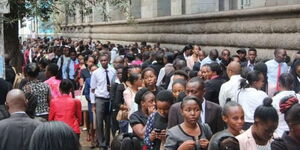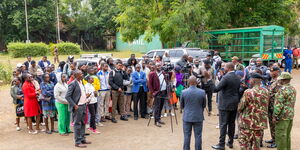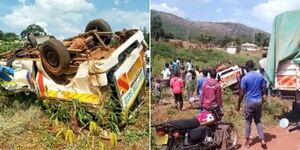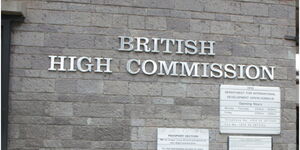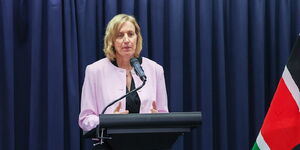LPG gas cylinders are a common sight in many Kenyan homes, where they are primarily used to cook meals.
If not handled properly, however, gas cylinders may present a safety risk for you, those you live with and, potentially, your neighbours.
Multiple cases of gas accidents resulting in deadly explosions in Kenyan households have been reported in the past year.
In this article, Kenyans.co.ke takes you through the most important safety tips to remember to prevent deadly gas leaks and explosions.
How to Detect Gas Leaks
Keeping in mind that gas cannot be seen, only smelt, it is important to know how to detect gas leaks in your house.
A key identifier of a gas leak is if the flame is orange or yellow instead of blue. In such cases, the flame also leaves soot on cooking appliances.
It is also crucial to listen for a hissing sound from your gas connection or burner if you suspect a leak.
Handling and Use
To avoid gas leaks and explosions, keep in mind the following recommendations to reduce the risks.
Always use gas cylinders in a vertical position, unless your cylinder is designed to be used otherwise.
Also, remember to securely restrain gas cylinders to keep them from falling over.
In addition, before connecting your gas cylinder to a pipe or equipment such as a regulator, ensure the pipe or regulator is suitable for the specific cylinder and the pressure being used.
It is also crucial to remember not to drop, roll or drag gas cylinders.
When not using the gas cylinder, ensure the cylinder valve is closed properly. Where provided, dust caps are also to be replaced.
Storage
Gas cylinders are not to be stored for excessive periods of time. Remember to only purchase sufficient quantities of gas to cover your short-term needs.
Store your gas cylinder in an adequately ventilated building or in a part of the building specifically reserved for that purpose.
Gas cylinders containing flammable gas should also not be stored in a section of the building used for other purposes.
One must also keep in mind to protect gas cylinders from external heat sources that may seriously affect their mechanical integrity.
For empty cylinders, ensure the valve remains shut to prevent contaminants getting into the cylinder.


